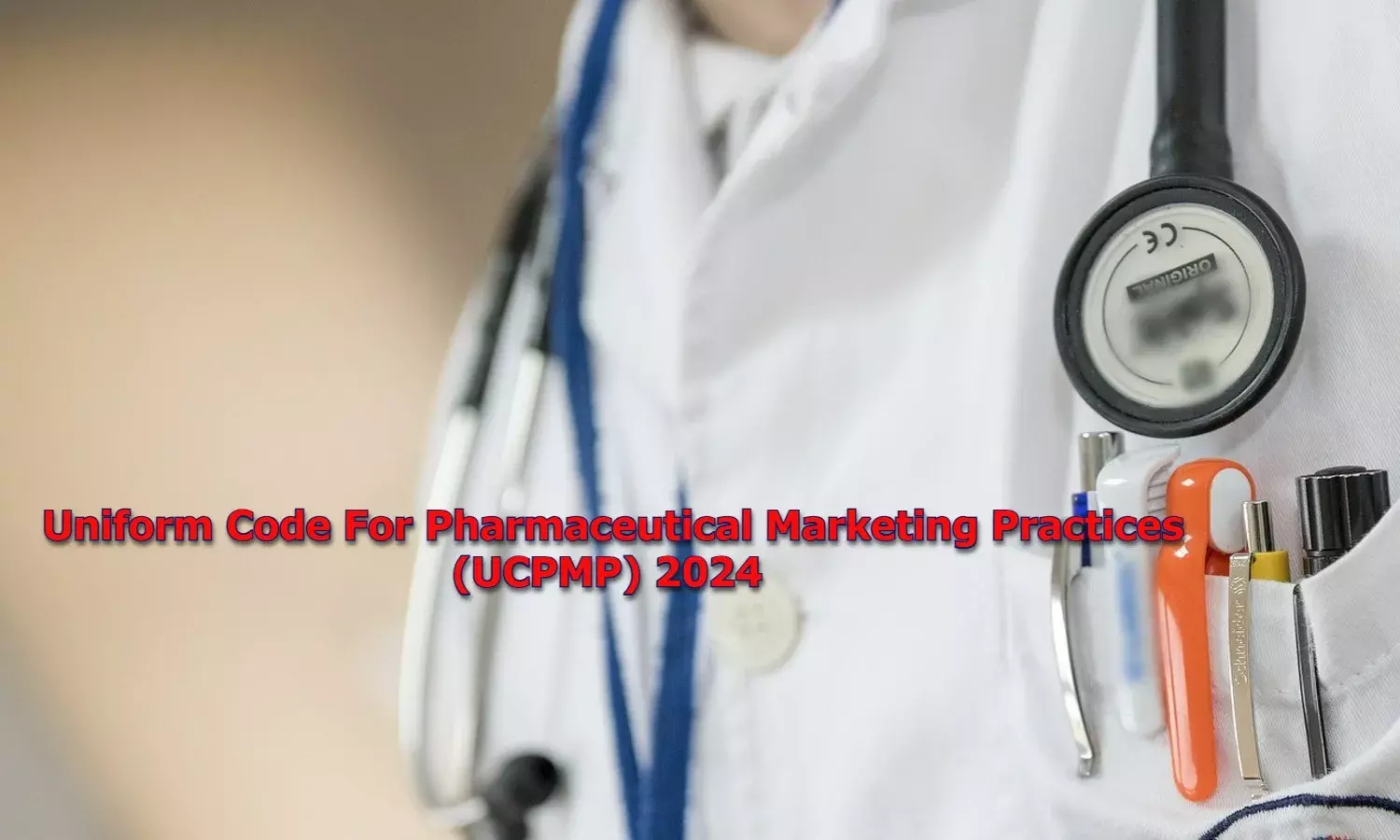No Gifts Or Travel Facilities To Doctors By Pharmaceutical Companies: Centre Calls For "Strict Compliance" Of Uniform Code For Pharmaceutical Marketing Practices (UCPMP) 2024

The Central Government has called for the strict compliance of the Uniform Code for Pharmaceutical Marketing Practices (UCPMP) 2024, which was notified by it yesterday.
The Ministry of Chemicals and Fertilizers, Department of Pharmaceuticals in a letter addressed to Pharmaceutical Associations, “All associations are requested to constitute an Ethics Committee for Pharmaceutical Marketing Practices (ECPMP), set up a dedicated UCPMP portal on their website, and take further necessary steps towards implementation of this Code.”
Clause 1.2 of the Code states that the promotion of a drug must be consistent with the terms of its marketing approval and a drug must not be promoted prior to receipt of its marketing approval from the competent authority, authorizing its sale or distribution.
“Information about drugs must be balanced, up-to-date, verifiable, must not mislead either directly or by implication; accurately reflect current knowledge or responsible opinion; and must be capable of substantiation, which must be provided without delay, at request of the members of the medical and pharmacy professions, including members of other professions employed in the pharmaceutical industry”, Clause 1.3 reads.
As per Clause 3.3 of the Code, the promotional material such as mailings and journal advertisements must not be designed to disguise their real nature and where a pharmaceutical company pays for, or otherwise secures or arranges the publication of some promotional material in journals, such promotional material must not resemble the editorial matter.
Clause 4.2 says that the medical representatives must at all times maintain a high standard of ethical conduct in the discharge of their duties and they must comply with all relevant requirements of the Code.
“Engagement of pharmaceutical industry with the healthcare professionals for Continuing Medical Education (CME), Continuing Professional Development (CPD) or otherwise for conference, seminar, workshop, etc. should only be allowed through a well-defined, transparent, and verifiable set of guidelines based on which the pharmaceutical industry may undertake such expenditures”, Clause 6.1 says.
Clause 8 of the Code mentions about the relationship with healthcare professionals in the following manner:
8.1 Gifts: No gift should be offered or provided for personal benefit of any healthcare professional or family member (both immediate and extended) by any pharmaceutical company or its agent i.e. distributors, wholesalers, retailers, etc. Similarly, no pecuniary advantage or benefit in kind may be offered, supplied, or promised to any person qualified to prescribe or supply drugs, by any pharmaceutical company or its agent i.e. distributors, wholesalers, retailers, etc.
8.2 Travel: Companies or their representatives, or any person acting on their behalf, should not extend travel facilities inside or outside the country, including rail, air, ship, cruise tickets, paid vacations, etc., to healthcare professionals or their family members (both immediate and extended) for attending conferences, seminars, workshops etc., unless the person is a speaker for a CME or a CPD Program.
8.3 Hospitality: Companies or their representatives, or any person acting on their behalf, should not extend hospitality like hotel stay, expensive cuisine, resort accommodation etc., to healthcare professionals or their family members (both immediate and extended) unless the person is a speaker for a CME or a CPD program.
8.4 Monetary Grants: Companies or their representatives should not pay cash or monetary grant to any healthcare professional or their family members (both immediate and extended) under any pretext.
Clause 9 is about the Ethics Committee for Pharma Marketing Practices while Clause 10 is regarding the lodging of complaints.


